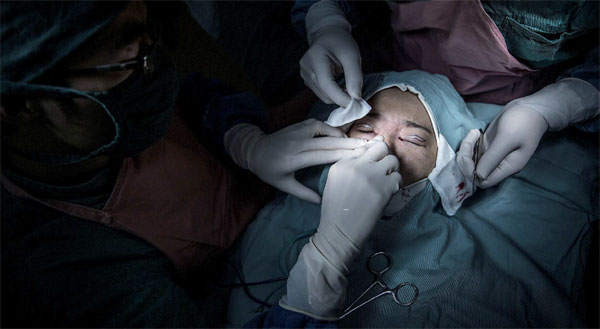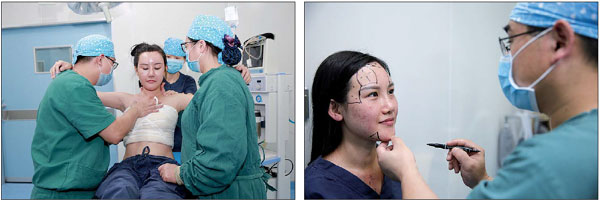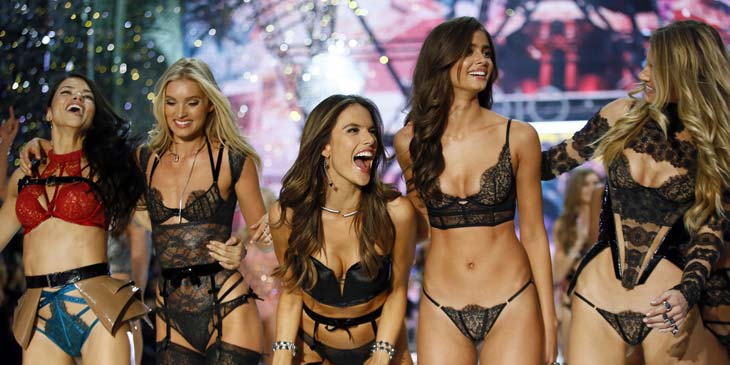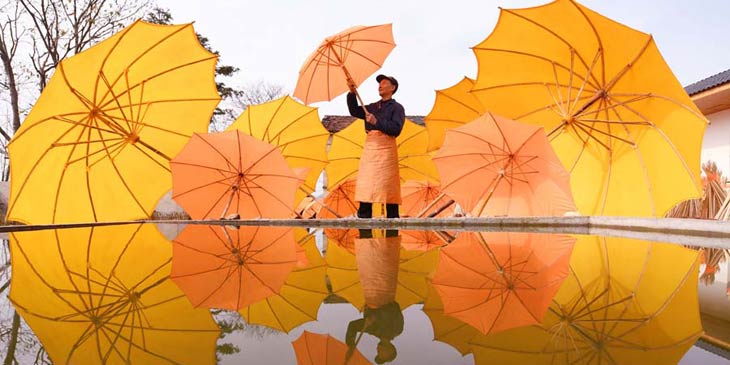Surgery rises as answer to self-image
Increasingly, young people are opting to go under the knife to improve their looks
When Xiao Di, 22, went under the knife last year to have her face changed, she was already a veteran of cosmetic surgery, having had a suture inserted to give her double eyelids when she was 18.
However, over three years those eyelids had become increasingly irksome to her, her main complaint being that they were obviously artificial. Other features of her face bothered her, too.
"It's obvious I wasn't blessed with good looks," says Xiao, of Beijing, whose name has been changed for this story.
|
Millions of people in China -predominantly women - have had surgery in pursuit of beautiful looks. Feng Haiyong / For China Daily |
|
The most popular procedures among young people are for eyes, nose and facial contours, including jawline, forehead, and chin, says Xue Zhiqiang, a senior cosmetic surgeon at the China-Japan Friendship Hospital in Beijing. Photos by Yang Dong / China Daily |
"I didn't need to summon up courage or need time to decide whether to have cosmetic surgery. If it's going to make you look good, why not go for it?"
During her first year in college she asked her parents to pay for more cosmetic surgery, but they refused, saying it was unnecessary and too risky. Undeterred, she kept pestering them, and they finally came around to the idea during her fourth year in college.
This was to be an operation with no half measures, one that would redo those pesky eyelids and would give her wider eyes, a higher nose bridge and what she considered a better-shaped face, one with a pointed chin.
Xiao declares herself pleased with the result, saying that earlier she would have given herself no more than 3 points out of 10 for looks but now would give herself 7.
Yet she is still not totally satisfied and looks forward to more surgery, including having her breasts enlarged.
Millions of people in China - predominantly women - have had surgery in pursuit of beautiful looks, but Xiao is one of a rapidly increasing group that underlines a new trend: Those having cosmetic surgery once tended to be older people looking to restore their youthful allure, but these days it is increasingly young people in their 20s or early 30s, or even younger, who are willing to splash out money for a physical makeover.
Recently SoYoung, an online service in China that puts potential cosmetic surgery patients in contact with appropriate surgeons, did a survey of the spending habits of college students and says 75 percent of the female respondents said they were open to the idea of having cosmetic surgery.
Jin Xing, the founder and chief executive officer of SoYoung, says the result surprised even him but he eventually understood the dynamics behind it.
In Chinese society, he says, rapid economic change is making us all more competitive, and many people welcome anything that will give them an advantage over others. Further, it is natural for people to prefer beauty to the mundane, so when medical measures are available to improve one's looks, people will inevitably seize the opportunity, he says.
"When being beautiful produces money and greater opportunities, a decision to invest in cosmetic surgery seems entirely logical and worthwhile," he says.
A profile of SoYoung's customers suggests that people under 35 account for a fast-growing share of the cosmetic surgery market in China. According to industry sources, the total size of the market is expected to be about 300 billion yuan ($47 billion; 44 billion euros; 37.5 billion) every year, with a growth rate of 30 percent. It is estimated that the market will reach 800 billion yuan in 2018.
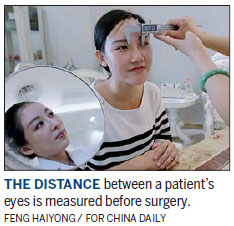
About 70 percent of SoYoung's customers are 26 or younger. That figure was 50 percent when the company was founded three years ago, Jin says, adding that the great bulk of the remaining customers are in their 30s and 40s.
The demographics of the clientele of other online services are similar, although customers older than 40 may take up a larger share of the offline market, especially in small and remote areas, he says.
In Europe and the United States, people generally seem to be more satisfied with looks than their counterparts in China, and more than 70 percent of spending in the industry is for anti-aging procedures, such as anti-wrinkle measures and facelifts. Those in China, Japan, South Korea and other East Asian countries are more likely to want to change their looks and spend on procedures that will change their facial and body features, such as double eyelid surgery, nose jobs, breast augmentation and jawline operations, Jin says.
In addition, young people are relatively open-minded, and are quick to adopt new ideas and practices, including those related to cosmetic surgery, Jin says.
This is even more true among people born in the 1990s. Market surveys indicate that they are more apt to be self-conscious, more likely to show off by circulating their photos and details about their personal and work life on social media, and like themselves to be seen as fashionable, Jin says.
Some even take out loans when they lack the money to pay for surgery.
In March the company launched a business program to provide loans to people who want to have cosmetic surgery, and it received more than 10,000 applications for loans totaling more than 49 million yuan by the end of August, Jin says.
Xiao says her new looks have made her more confident than ever, and she believes the surgery has benefited her in many ways. For example, once she left college it helped her land a good job easily, she says.
"The other candidates were just as good as me, if not better, in terms of education, personality and work experience, but it was I who got the opportunity. When people competing for a job are similarly qualified it makes a big difference if you look better."
In the past, young men she took a fancy to rejected her overtures but now she has suitors lining up for her attention, she says.
In addition, her parents have told her that if she wants more cosmetic surgery they are willing to pay for it.
Many of her friends and relatives have followed her lead and had surgery themselves.
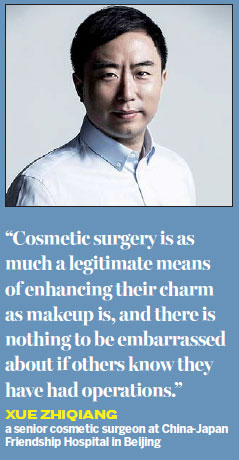
Xuan Xuan, 25, says having such surgery is now common among young people.
Many of her friends have had cosmetic surgery, and it is as much a topic of conversation as clothes and cosmetics. And they pass on information to each other about doctors and procedures, she says.
She had face slimming injections when she was 19 and has since had eyelid surgery, regular hyaluronic acid injections to fill out her face and botox injections to make it slim.
The rationale behind having cosmetic procedures is simply that it makes her look beautiful and thus makes her happy, she says.
Xue Zhiqiang, a senior cosmetic surgeon at China-Japan Friendship Hospital in Beijing, says the Chinese cosmetic surgery market is growing rapidly, and he marvels at young people's open-mindedness on the matter.
"Young people are definitely becoming the largest group in China who undergo cosmetic operations," he says.
"For them, cosmetic surgery is as much a legitimate means of enhancing their charm as makeup is, and there is nothing to be embarrassed about if others know they have had operations."
Most of his clients are under 30, and more than 80 percent are under 28, he says.
Chinese tend to have flatter faces, narrower eyes and smaller breasts than do Westerners. Under the influence of Western culture, Chinese young people's conception of beauty has changed, and many are willing to have nonsurgical and surgical procedures in order to better comply with such aesthetics.
The most popular procedures among young people are for eyes, nose and facial contours, including jawline, forehead and chin, he says.
Also, young people are very open to showing and talking about their cosmetic surgery experiences online and with friends and family offline.
There are numerous forums and online platforms for people to do so, and the popularity of social media with young people, on which they often post photos, also stokes the desire of others to look better, Xue says.
Some people have cosmetic procedures to advance their careers or to improve relationships and social life, while others just feel better about themselves if they make changes, he says.
While most of those who have cosmetic surgery in China are females, more males are being aware of the possibilities.
Jin Xing, CEO of SoYoung, says that in 2013 about 10 percent of SoYoung users were men.The figure is now 17 percent.
Liu Zeyu, born in 1992, is an online advocate for cosmetic surgery and has posted before-and-after cosmetic surgery photos of himself that he hopes encourages others to follow his example.
"You can't be blamed for being born with a plain face, but if you can be made to look more attractive, why not? Being good-looking is great."
He works for an IT company and is at the same time a singer, model and host on live streaming websites. He also talks about his cosmetic surgery experience on forums and apps.
Liu started having cosmetic surgery when he was 18 and attributes his successful career largely to the fact that he is good-looking.
"Being good-looking is a big advantage. If two people are alike in many ways, the more attractive one is always more popular. If someone decides to spend money on cosmetic surgery it's a personal choice that harms no one else."
liuzhihua@chinadaily.com.cn
(China Daily European Weekly 12/02/2016 page1)







